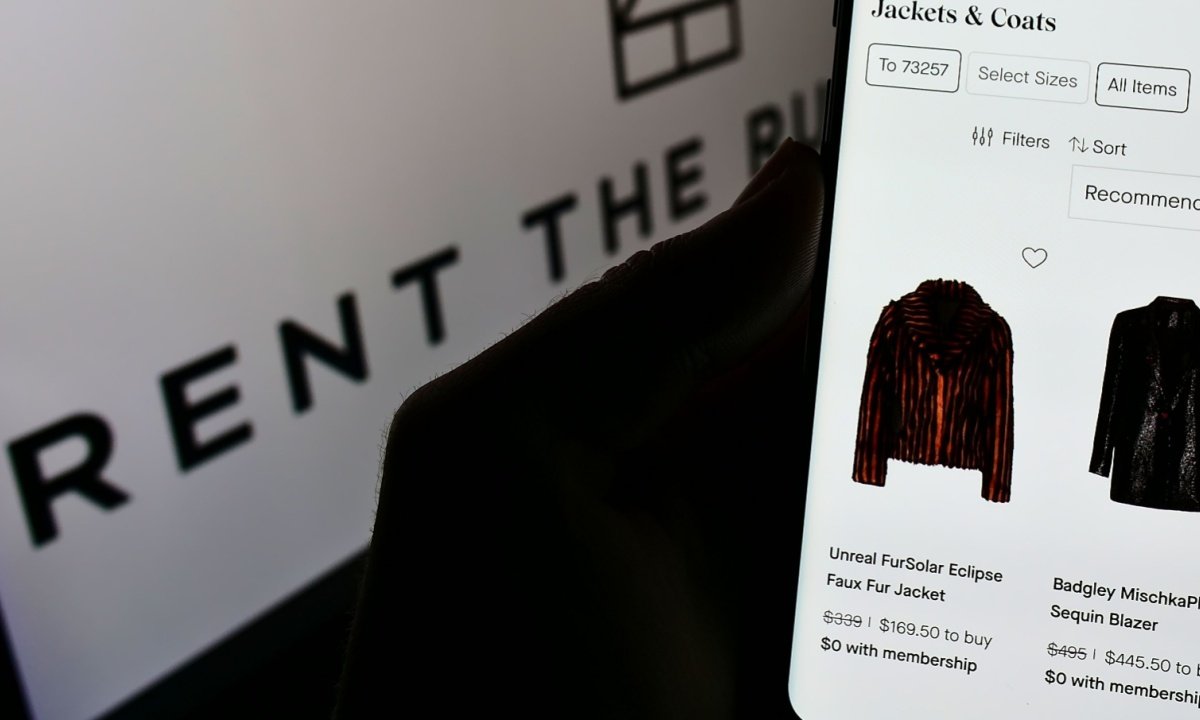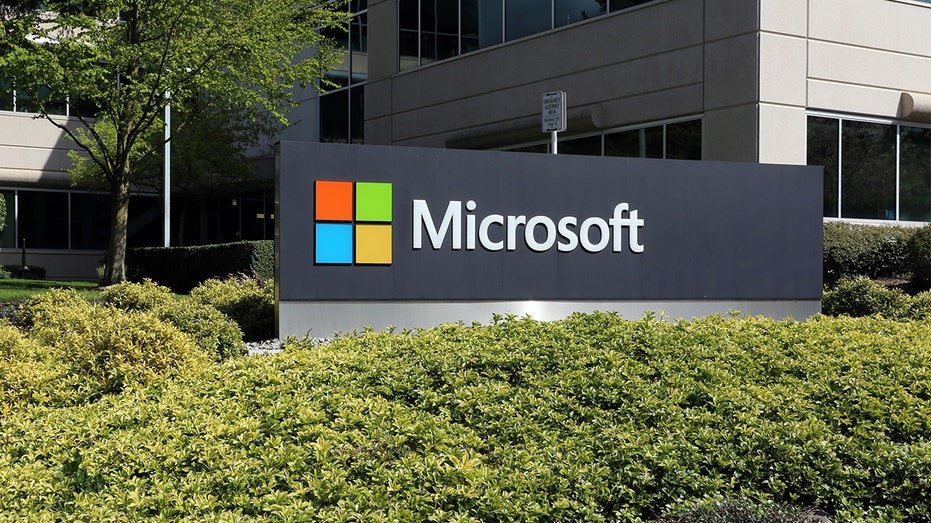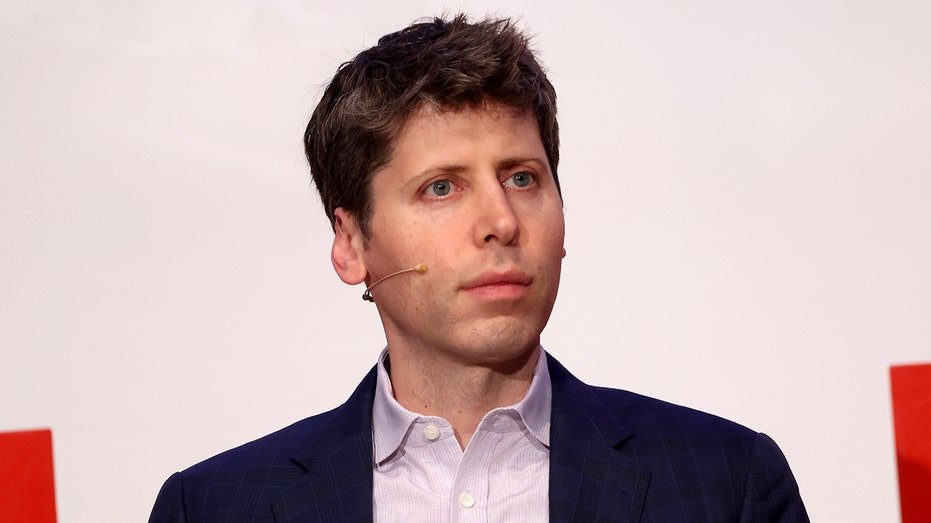Business
Wall Street Loves AI Hype, but Less Than 1 in 10 Businesses Use It. Here’s Who’s Winning Anyway.
Key Points
-
AI is a popular investing trend despite the fact that its use is not widespread throughout the business world.
-
San Diego and Boston are the cities where AI usage is most prevalent.
-
The information sector is the leading the way in AI adoption.
Where to invest $1,000 right now? Our analyst team just revealed what they believe are the 10 best stocks to buy right now. Learn More »
There’s no denying that Wall Street analysts remain bullish about artificial intelligence (AI) stocks — even in light of some of the massive gains they’ve already made. Main Street investors have also been incredibly ebullient about the prospects of stocks that have varying levels of AI exposure.
But the optimism that analysts and retail investors share belies the fact that many businesses are still not incorporating AI solutions into their operations, according to the latest research from The Motley Fool. Beguiling as this may be, AI is still growing in popularity in certain regions and organizations.
Image source: Getty Images.
AI and the city
Far from ubiquitous, the adoption of AI varies greatly throughout the United States. There are some areas that stand out, though. Southern California, for example, is one of the hotbeds for AI activity. Leading the nation, the San Diego metropolitan area currently boasts a 16% usage rate, and it’s expected to rise to about 20%.
The popularity of AI in the San Diego metropolitan area stems from the multitude of AI start-ups located there. For example, Shield AI is an aerospace and defense company that is developing an autonomous pilot in collaboration with Kratos Defense and Security.
Unsurprisingly, the Boston metropolitan area — home to prestigious academic institutions like Harvard and the Massachusetts Institute of Technology — is another significant source of AI activity. Whether it’s a reflection of graduates from Harvard and MIT staying in the area or the faculty from these institutions, many AI start-ups are calling the city home. Boston Dynamics, for instance, is a leader in AI and autonomous robots, and it traces its history back to MIT.
AI in the workplace
Currently, only 9.2% of businesses are incorporating AI solutions. Although this may seem low, it’s a noticeable gain over the 3.7% adoption rate the U.S. Census Bureau identified when it first started collecting data in the fall of 2023. The spread of this technology doesn’t show signs of slowing down either — it’s projected that in six months, 11.6% of businesses will be using AI.
Consistent with its growing popularity among individuals in and out of the workplace, the information sector, which includes tech and data companies, is the leading source of AI adoption in business with a 24.2% usage rate. For example, ChatGPT, now a household name, has emerged as a prime tool for sourcing information much the same way that Alphabet‘s Google developed into the leading internet search engine.
The sector is packed with some of the most recognizable, established providers of AI tools. From Microsoft Copilot and Alphabet’s Gemini to IBM‘s Watson AI and Apple‘s Siri, the information sector is a who’s who of AI innovators. Of course, so many of the capabilities that companies can provide in generative AI, along with other AI functionality, are made possible by Nvidia (NASDAQ: NVDA), which designs industry-leading graphics processing units (GPUs).
That’s not to say that other sectors aren’t embracing AI. Featuring a 21.4% usage rate, the mining sector is also a notable proponent. One of the largest mining companies by market capitalization, RioTintoGroup, has incorporated AI into various aspects of the company’s operations, including autonomous haulage systems and creating 3D subsurface maps to improve exploration of mineral deposits.
If you’ve bought or sold a home recently, you’ve likely noticed how common AI is in the real estate industry too, where AI has a 17.4% usage rate. Zillow Group and Redfin rely on the technology to assist in producing property value estimates, while Nvidia provides the ability to produce digital twins, enabling virtual tours with its Omniverse technology.
As it becomes increasingly well-known how businesses are leveraging the power of AI, non-adopters will surely begin to incorporate the technology in greater numbers.
Should investors eschew AI stocks due to their relatively low adoption rates in business?
While it may be some time before AI is truly widespread across industries, investors should not take this data as a cue that now is a poor time to invest in AI stocks. The early stages of a major technological shift tend to also be an optimal time for growth investors to build their exposure to stocks in the space.
For an all-in-one AI stock, investors will want to strongly consider Nvidia. Its dominant position in the AI landscape has made it the world’s most valuable company, and it has the launch of new GPUs featuring its Blackwell Ultra architecture representing just one near-term catalyst. There is plenty of growth potential on the horizon too.
And that’s not to say that more conservative investors should avoid AI stocks, either. If managing risk and diversification are top concerns, they can consider an AI-focused ETF as yet another way to prosper from the burgeoning industry.
Should you invest $1,000 in Nvidia right now?
Before you buy stock in Nvidia, consider this:
The Motley Fool Stock Advisor analyst team just identified what they believe are the 10 best stocks for investors to buy now… and Nvidia wasn’t one of them. The 10 stocks that made the cut could produce monster returns in the coming years.
Consider when Netflix made this list on December 17, 2004… if you invested $1,000 at the time of our recommendation, you’d have $633,452!* Or when Nvidia made this list on April 15, 2005… if you invested $1,000 at the time of our recommendation, you’d have $1,083,392!*
Now, it’s worth noting Stock Advisor’s total average return is 1,046% — a market-crushing outperformance compared to 183% for the S&P 500. Don’t miss out on the latest top 10 list, available when you join Stock Advisor.
*Stock Advisor returns as of July 29, 2025
Scott Levine has no position in any of the stocks mentioned. The Motley Fool has positions in and recommends Alphabet, Apple, International Business Machines, Microsoft, Nvidia, and Zillow Group. The Motley Fool recommends the following options: long January 2026 $395 calls on Microsoft and short January 2026 $405 calls on Microsoft. The Motley Fool has a disclosure policy.
Business
Databricks AI Chief to Exit, Launch a New Computer Startup

(Bloomberg) — Naveen Rao, the head of artificial intelligence at the $100 billion startup Databricks Inc., is planning to leave his position to launch a new venture making a novel type of computer, according to a person familiar with the matter.
A spokesperson for Databricks confirmed that Rao is transitioning to an advisory role at the company, and said that Databricks is planning to invest in his new startup. The spokesperson declined to disclose the size of the investment.
Rao has also held early talks with other investors about backing the new company, which would focus on building a next-generation computer to address the rising costs of AI computing power, said the person familiar with the conversations, who asked not to be named discussing private information.
Rao declined to comment on his plans for the new company.
Rao is a serial entrepreneur who sold his data and AI analytics startup MosaicML to Databricks in 2023 for $1.3 billion. MosaicML had raised about $30 million from investors including Maverick Ventures, Lux Capital and DCVC. Before that, Rao co-founded Nervana Systems, a machine intelligence platform, which was acquired by Intel Corp. in 2016 for about $350 million.
Given Rao’s track record, the new venture could attract significant investor interest at a lofty valuation. He would also join a wave of prominent tech executives who’ve launched startups, including former OpenAI Chief Technology Officer Mira Murati, whose company Thinking Machine Labs was last valued at $10 billion, and ex-Salesforce co-CEO Bret Taylor, whose two-year-old AI startup Sierra was also recently valued at $10 billion.
Databricks recently raised $1 billion in a funding round that made it one of the country’s most valuable startups. The round was co-led by Andreessen Horowitz, Insight Partners, MGX, Thrive Capital and WCM Investment Management.
More stories like this are available on bloomberg.com
Business
Rent the Runway Adds AI Enhancements Amid Transformation

Rent the Runway is continuing to roll out new personalized recommendations and artificial intelligence (AI)-powered enhancements as part of a wide-ranging transformation of its fashion subscription, rental and resale platform.
Business
OpenAI nonprofit gains $100B stake while retaining control of AI company

NVIDIA CEO and co-founder Jensen Huang commends President Donald Trump’s A.I. agenda and outlines what the country’s job future will look like on ‘Special Report.’
Artificial intelligence giant OpenAI on Thursday announced its nonprofit parent will retain control of the company while also gaining an equity stake worth more than $100 billion.
The move will allow OpenAI to raise new capital while also making its nonprofit parent company “one of the most well-resourced philanthropic organizations in the world,” according to Bret Taylor, chairman of OpenAI’s board.
OPENAI TEAMS UP WITH WALMART TO TRAIN MILLIONS OF WORKERS IN ARTIFICIAL INTELLIGENCE
“This recapitalization would also enable us to raise the capital required to accomplish our mission — and ensure that as OpenAI’s [public benefit corporation] grows, so will the nonprofit’s resources, allowing us to bring it to historic levels of community impact,” Taylor said in a statement.
In this photo illustration, the OpenAI logo is seen displayed on a smartphone screen. (Thomas Fuller/SOPA Images/LightRocket via Getty Images / Getty Images)
OpenAI and Microsoft also said in a joint statement on Thursday that they signed a non-binding memorandum of understanding (MOU) to shape their next phase of partnership and are actively working to finalize a definitive deal. The companies said they are focused on building “the best” artificial intelligence tools that are also safe.
OPENAI CEO SAM ALTMAN WARNS OF AI FRAUD CRISIS ‘VERY SOON’
“OpenAI and Microsoft have signed a non-binding memorandum of understanding (MOU) for the next phase of our partnership,” the two companies said in a joint statement Thursday afternoon. “We are actively working to finalize contractual terms in a definitive agreement. Together, we remain focused on delivering the best AI tools for everyone, grounded in our shared commitment to safety.”

The Microsoft headquarters campus in Redmond, Washington. (iStock / iStock)
Microsoft has reportedly invested around $13 billion in the ChatGPT creator since 2019.
A MAJORITY OF SMALL BUSINESSES ARE USING ARTIFICIAL INTELLIGENCE
In May, OpenAI announced it was scuttling its plan to move the company away from a nonprofit structure to becoming a for-profit company. The ChatGPT-maker created a for-profit limited liability company (LLC), which it converted into a public benefit corporation that considers the interests of shareholders as well as OpenAI’s mission. The tech giant announced at the time that OpenAI’s nonprofit would have operational control over the public benefit corporation and would be a large shareholder in it.

Sam Altman, co-founder and CEO of OpenAI, speaks during a panel discussion titled “The Age of AI” at the Technical University of Berlin on February 07, 2025, in Berlin, Germany. (Sean Gallup/Getty Images / Getty Images)
OpenAI CEO Sam Altman, who prompted the company’s exploration of moving to a for-profit structure to make it easier for the company to raise the large amounts of money for investments he thinks will be needed to achieve artificial general intelligence (AGI), sent a letter to employees at the time explaining the decision and what it means for the company.
GET FOX BUSINESS ON THE GO BY CLICKING HERE
“OpenAI was founded as a nonprofit, is today a nonprofit that oversees and controls the for-profit, and going forward will remain a nonprofit that oversees and controls the for-profit. That will not change,” Altman wrote in May.
FOX Business’ Eric Revell contributed to this report.
-

 Business2 weeks ago
Business2 weeks agoThe Guardian view on Trump and the Fed: independence is no substitute for accountability | Editorial
-
Tools & Platforms1 month ago
Building Trust in Military AI Starts with Opening the Black Box – War on the Rocks
-

 Ethics & Policy2 months ago
Ethics & Policy2 months agoSDAIA Supports Saudi Arabia’s Leadership in Shaping Global AI Ethics, Policy, and Research – وكالة الأنباء السعودية
-

 Events & Conferences4 months ago
Events & Conferences4 months agoJourney to 1000 models: Scaling Instagram’s recommendation system
-

 Jobs & Careers2 months ago
Jobs & Careers2 months agoMumbai-based Perplexity Alternative Has 60k+ Users Without Funding
-

 Podcasts & Talks2 months ago
Podcasts & Talks2 months agoHappy 4th of July! 🎆 Made with Veo 3 in Gemini
-

 Education2 months ago
Education2 months agoMacron says UK and France have duty to tackle illegal migration ‘with humanity, solidarity and firmness’ – UK politics live | Politics
-

 Education2 months ago
Education2 months agoVEX Robotics launches AI-powered classroom robotics system
-

 Funding & Business2 months ago
Funding & Business2 months agoKayak and Expedia race to build AI travel agents that turn social posts into itineraries
-

 Podcasts & Talks2 months ago
Podcasts & Talks2 months agoOpenAI 🤝 @teamganassi





















